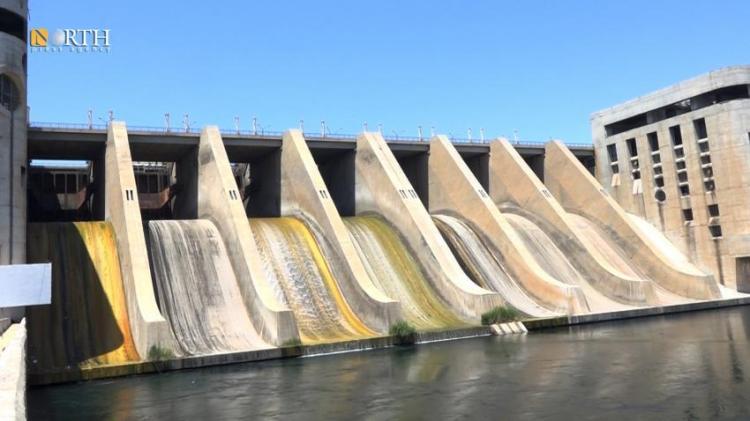Turkey weaponizes water and electricity against Syria’s Autonomous Administration areas
ISTANBUL, Turkey (North Press) – A state of dissatisfaction exists among activists and politicians concerned with Turkish affairs due to Turkey's foreign policy, the latest of which is the restriction on the population of northeastern Syria, especially in Hasakah, by reducing the water level of the Euphrates River.
Turkey did not justify this measure, and observers believe that it aims to pressure the Autonomous Administration in North and East Syria, ignoring the humanitarian situation and civilian need for water.
Observers added that this issue decreased electricity production, and interrupted a large number of water pumps needed to provide water to agricultural land, amid fears of the consequences if this situation continues.
Turkish activist Aisha Kaya, who is concerned with Syrian affairs, said in an interview with North Press that "Turkey may take this step in defiance of the Syrian Democratic Forces (SDF) in Hasakah, Raqqa and parts of Deir ez-Zor, especially since Turkey accuses the SDF of reducing the electricity amount to the Operation Peace Spring area, which is a Turkish-held area, and this matter disturbed Turkey.”
Turkish Armed Forces and Turkish-backed armed opposition groups took control of the cities of Sere Kaniye and Tel Abyad and their surrounding countrysides as part of Operation Peace Spring in October 2019. Since this time, residents in the region have reported many human rights abuses, including theft, looting, assault, kidnapping and murder.
Kaya added that “there is an agreement between the SDF and Turkey, under Russian auspices, in which SDF provides 15 megawatts of electricity to Turkish-held areas in northeastern Syria, and that the opposition’s Syrian National Army and local councils operate Alouk water station to supply Hasakah with water.”
“Alouk station is under Turkey's control; it provides Hasakah governorate with water. Hence, Turkey's pressure on the SDF may lower the water level of the Euphrates,” according to Kaya.
Kaya pointed out that “the sharp fall in Euphrates’ [water] level will affect the electricity that feeds Syria's northeastern areas.”
Media sources said that co-chair of Executive Council of the Autonomous Administration Ilham Ahmad accused Turkey of attempting to control residents of Autonomous Administration areas, and that Turkey cut off drinking water flow from Alouk's station to more than half a million people in Hasakah.
“Turkey cut off the Euphrates’ water after it built dams on it; by doing this it exposes the lives of about five million Syrians to risk,” Ahmed added.
According to an agreement signed between Syria and Turkey in 1987, Turkey must provide 500 cubic meters of water per second to Syria, though Turkey has thus far ignored the stipulations of this agreement.
Political motives
Mustafa Bazerkan, an Iraqi petrol and electricity expert, told North Press that “the Turkish step may have political aims: to put the Syrian government under pressure, or a means to discuss the amount of water…the third reason may be technical, keeping in mind that a year ago, there was also a problem with Iraq in releasing or reducing water, because Turkey filled the dam’s large reservoirs that have been established recently.”
In 2019, the Iraqi Ministry of Water Resources accused Turkey of causing a water shortage in Iraq, stating that the Tigris River’s supply of water at the Turkish border would decrease from 20.93 billion cubic meters annually to 9.7 billion cubic meters after the opening of the Turkish Ilisu Dam on the river.
According to observers, Turkey is weaponizing water and electricity against residents of Autonomous Administration areas to force them to accept its terms in the absence of international moves to stop Turkey, repeating the Iraqi scenario.

